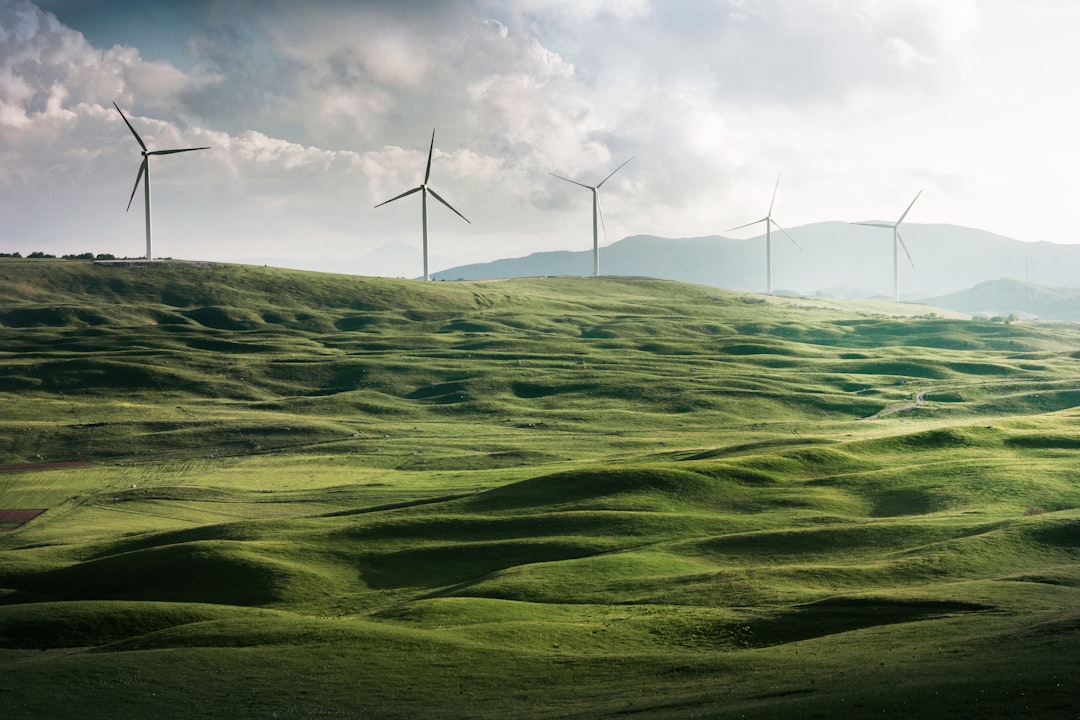Today I wanted to expand on a theme I have been writing about for a while: that the green energy revolution is anything but green.
In fact, the amount of metal required and the amount of fossil fuel needed to be burnt to make it happen means it will be extraordinarily damaging to the environment, while unprecedented amounts of CO2 will be released into the atmosphere.
Moreover, unlike the inflation that resulted from Covid and the Ukraine war, which might yet prove temporary, Net Zero will produce inflation that will be prolonged and entrenched.
In other words, Net Zero is not only deluded, but it will also be extremely damaging, both to the planet and to people’s lives.
Here we explain why - and what to do to protect your wealth.

How much more metal do we need to achieve Net Zero?
I stumbled across a super talk this week by Mark Mills, author and senior fellow at the Manhattan Institute, called "The Energy Transition Delusion: Inescapable Mineral Realities".
He argues that the current energy transition to renewable is based on a flawed understanding of the resources required to make it happen. Most of the evidence cited here is cited from that talk.
Today the world gets a little under 4% of its total energy supply from wind and solar. That’s one-third as much energy as it gets from burning wood. I couldn’t believe that stat when I read it - are we still burning that much wood? - but that’s what the International Energy Agency (IEA) says.1 Wood still provides 350% more energy to the world than all the world's wind turbines and solar power combined.
To get to this 4% level the world has directly spent something like $5 trillion (more than double UK GDP) in the last 15 years, and probably the same amount again in indirect spending, says Mills.
An electric vehicle requires 400% more metal than a conventional car. To build a machine to replace a gas turbine, you need 1,000% to 2,000% more mineral to deliver the same unit of power. To deliver the same mile of driving, the same hour of heat, the same hour of lighting or the same hour of computer time the extra minerals required amount to anything from 2,000% to 7,000%
Overall this amounts to an increase in mineral demand in the order of 700% to 4,000%.
“Not to put too fine a hyperbolic a point on this,” says Mills, “this would be the largest single increase in demand or supply of metals in all of human history. It's never happened.”
Where is all this metal going to come from?
Mining cannot increase output whether by 700% or 4,000%, not in the next decade, nor in time for the Net Zero deadlines.
We are thinking in terms of kilowatt hours instead of in terms of tonnage - and tonnage is what’s required to get those kilowatt hours. Mills says, “It requires both the extraction and movement of a quantity of materials equal to or greater than the quantities of materials that humanity extracts and moves and grows for all other purposes combined. The world's not capable of doing that with the technologies that exist.”
Where is all this new metal going to come from? To take a mine from exploration and discovery to production takes 16 years. Even if you relax regulation (unlikely) and accelerate investment (not so easy) you are only at best going to shave a few years off that.
To go out and explore for mines and develop them requires investment, which the industry has been starved of since 2011. What’s more, there’s no guarantee you will ever get a payback: exploration has a success rate of about one in a thousand. Let’s say you do discover something and start building a mine, what if commodity prices come down? You lose a lot more than your shirt.
Then there’s the political risk, whether from activists campaigning to get your mine closed (many mine plans in Chile, for example, which is supposed to be a mining hub, have lately been ditched because of such objection) or from governments seizing the produce. Burkina Faso's energy & mines ministry issued a statement on Tuesday saying it had "commandeered" 200kg of gold from Endeavour Mining’s operations for "public necessity". The company will be compensated for its value, the statement added without providing further detail.
Mining is starved of finance yet “the mining industry needs to deliver new projects at a frequency and consistent level of financing never previously accomplished,” says energy research company Wood McKenzie. Currently, the world is not even investing 10% of what’s required.
Then there is the issue of refining. This is a major geopolitical and strategic issue. China dominates refining. 40% of the global copper supply is refined there, 35% nickel, 65% cobalt, 87% rare earth, 58% lithium.
Never mind the strategic questions of handing China that much power, how environmentally friendly do you think Chinese refining is going to be? Chinese coal production for power generation hit a record last year.
What will happen to energy and metal prices in all of this? Currently metals prices are a whisper in the broader inflation clamour. A sustained increase in the price of metals and energy of 300% or 400% will push up overall inflation. There is only so much you can hide with subsidies.
Now let’s look at another cost, the environmental cost.
As humans have extracted natural resources from the earth, they have become increasingly difficult to find and extract. A hundred years ago average copper grades were 4%. That is to say for every hundred tonnes of ore you process you might get four tonnes of copper. Today average grades have fallen to 1%. Other rarer metals require much more ore to be processed.
“A half tonne battery,” says Mills, “requires 250 tonnes of ore to be processed somewhere”.
How the energy transition leads to pollution and climate change
To produce the materials needed to realise Net Zero “will see the world consume fuels and emit carbon dioxide at levels that are unprecedented in mining history”, says Mills. Just nuts.
Every time someone buys an electric vehicle (EV), they are essentially purchasing the previous consumption of 25 barrels of oil equivalent - half oil, half coal and natural gas. These hydrocarbons will have been burnt before even the first electron moves into its batteries on the road.
By the time the electric vehicle first makes it to the parking space outside your home, it has already emitted 14 tons of CO2, compared to the 5 tonnes for the conventional vehicle. It’s not until the vehicle passes 60,000 miles that you end up with a net reduction.
Humans require more and more energy as we grow more sophisticated. The Industrial Revolution increased energy demand. The automobile increased energy demand. The aeroplane increased energy demand. Computing increased energy demand. Drones and robots and AI are all going to increase energy demand.
Surely, the answer is not to turn our backs on fossil fuels. The focus should be on developing cleaner and more efficient fossil fuel technologies, as well as improving renewable technologies.
Unfortunately, the focus on renewable energy technologies has diverted attention and investment from the development of the cleaner and more efficient fossil fuel technologies we need.
How to invest in the Net Zero transition
So how to play all this? Do you think Net Zero diktats are going to change? I don’t. Governments are too scared of the environmental lobby to change tack.
The way to protect yourself, I’d say, is to be long energy and long commodities. The likes of BHP or Glencore at the safer end of the market to juniors at the riskier end.
However, what I have described above is not currently being displayed in energy and metals prices.
Either the market has already digested and discounted the story, or it feels it is too far away to matter, or it thinks that governments will pivot, or it is not yet priced in. What do you think?
The case for a secular bull market in commodities remains strong.
Interested in protecting your wealth in these extraordinary times? Then be sure to own some gold bullion. My current recommended bullion dealer is The Pure Gold Company, whether you are taking delivery or storing online. Premiums are low, quality of service is high. You can deal with a human being. I have an affiliation deals with them.
This article first appeared at Moneyweek.
International Energy Agency (IEA). (2020). Renewables 2020: Analysis and forecast to 2025. Paris: IEA. Retrieved from https://www.iea.org/reports/renewables-2020












